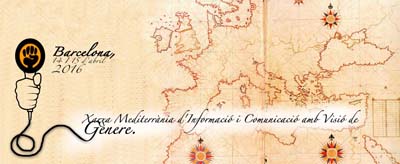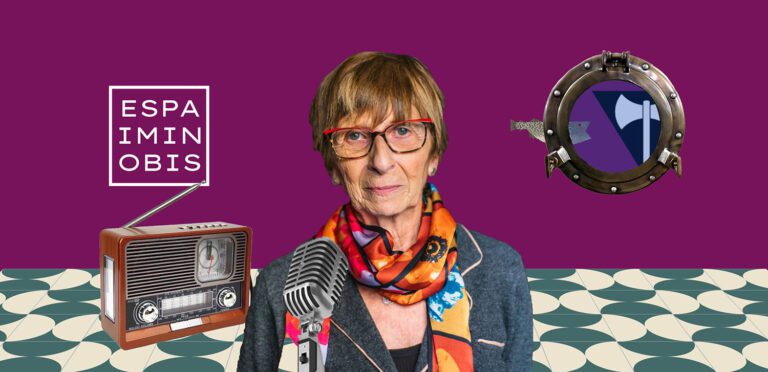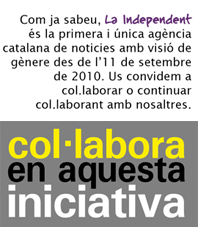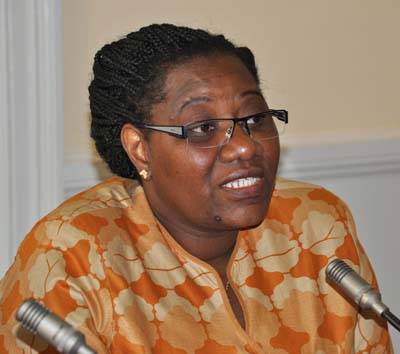
We thought it will be useful make an exercise of meta-analysis from our articles published in The Independent about the Women of the Arab revolutions. In the first place we pretend to show the women we had made visible from the countries and after to explain in which profession they work and what role they have had in our news; finally to find what were the lacks of our work.
The Independent is published thanks to the work colleagues from the International Network of women Journalist and Communicators from Catalonia, which is integrated in the International Network of Journalist with Gender Vision, as well as the Spanish Network and the Mediterranean network.
It is appropriate to say, the Independent was born on 11 September 2010 and part of the Newsroom Council were in February 2011 at the WSF (World Social Forum) in Dakar, where we live together with so many NGOs from the Arab countries and the rest of the world countries the facts that were happening at those moments in Egypt and Tunisia. That was very exciting for the rigorous direct and from the news coming from the friends and journalist. After the 2013 WSF in Tunis, we could live to close the spirit of so many women working for their wrights especially the Tunisian in its conviction that “A better world is not possible without women”. So, this small study is at the same time longitudinal and a case study of the treatment in the Independent of the women from some Arab countries on the South and East side of the Mediterranean.
The Independent is, in fact, the first News Agency with Gender Vision from Catalonia. We have now more than six million visits, so this is important because we broadcast thanks to the number of readers, but additionally we were very pleased to verify that some big media have show up later than they appear in The Independent, some of the women we introduced from the Mediterranean South and East. This is so important.
We want to mention finally, our close sources that have facilitated some information of the reports and journalistic work. Within them Institutions and Organizations such as: European Institute of the Mediterranean (IEMed), Secretariat of the Union for the Mediterranean in Barcelona; European Commission, Anna Lindh Foundation; Catalan Institute for Peace and the Human Rights; Ronda collective; Drac Magic (International Film Festival in Barcelona); Platform of Women Artists Against Gender Violence, Catalonia’s Filmoteca and House of AsiA…
Now we mention the women we contributed to make visible:
The Newsmakers
Saudi Arabia: Huda Mohamed, Bayan Zahran, Arwa a Hujaili
Algeria: Nafissa Lahrache, Salima Ghezali, Nafissa El Hur, Yasmina Medani, Wassyla Tamzali and Nadia Aitzai.
Egypt: Sahar Talaat, Randa Achmawi, Dalia Ziad, Nawal El Saadawi, Amal Ramsis, Sahar Elmohgi, Basna and Gihan Fadel, Mona Shaheen, Tahany el Gebal, Nevert Chehab, Gameela Ismail, Azza Balbas, Ikbal Baraka, Amr Mousa, and Bothaina Kamel.
Yemen: Tawakkul Karman, Amal Basha
Iran: Mariane Satrapi and Sholeh Irani.
Jordan: Rana Husseini and Sana Al-Emam,
Lebanon: Marysaloun Nassar and Muna Raquiq
Morocco: Leila Ghandi, Amina Ben Cheikh, Salwa el Gharbi, Layla Chafai and Aziza Berrada.
Palestine: Azza Karam, Safa Nasr El Din, Kawther Salam
Siria: Leila Nachawati
Tunisia: Amel Belhadj Ali, Sarah Bouchetob, Sophie Bessis, Amina Tyler, Raba Ben Achour, Sihem Bensedrine, Zakia Dhifaoui, Faten Hamdan, Lina Ben Mehner, Nadia to Fani, Hender Chennaoui, Selma Bacca, Nadia Khiari, Lilia Weslaty and Olfa Belhassine.
Turkey: Sedef Kabas.
Their profession and role in the news
Of the sixty women 26 of them are journalists, four media directors and four of them are also writers; There are three directors and three observatories professor of communication; 8 are blogger activists and/or activists from NGOs or Women’s Associations; from the world of culture there are one writer, two actresses, two filmmakers, two artists and illustrators and one Director of Cultural Association; Four lawyers and one judge; Two policies; Two directors and one International Telecommunication Minister.
And it is a pleasure to say that the vast majority is “one or more the protagonists” of the story, or interview, chronicle, report or article. Only in some opinion articles and in some chronic are only mentioned in a broader context and sometimes sharing the stage with men of the same areas.
Also worth noting is that the vast majority are positive experiences as active agents and only in some opinion articles and a news brief reference to women as a collective role of victim and always denounces key.
Improve their professional diversity
What should be improved is the professional diversity since most part comes from the world of journalism and communication, the proximity and ease of access to sources. Despite this evidence it could be justify in part because really the journalists, bloggers and activists have been with young people the key in transmission of revolutions and hopes that there were and are still demanding societies more democratic and egalitarian for the women. The geographical scope is also too urban as, apart from some activists who work in associations or groups of women in rural areas, the vast majority of sources live in big cities.
The topics within the major theme display are quite varied (women’s rights, violence against women, sexual freedom, religion, Islam and secularism, empowerment and social movements, culture and art processing, legislation and constitutions, economy and labor, freedom of expression, gender and security …) but developing them is already part of another analysis.
And finally, as we want to make visible women, we finish this communication with journalists that have treated the subject in The Independent: Tona Gusi, Lidia Vilalta and Gisella Evangelisti. We also had collaborations among others: Elena Price, Teresa Carreras, Maria-Àngels Roque, Tere Molla, Lali Sandiumenge, Giuliana Sgrena, Catherine Carmona, Anaïs Barnolas and Afef Tlili.




